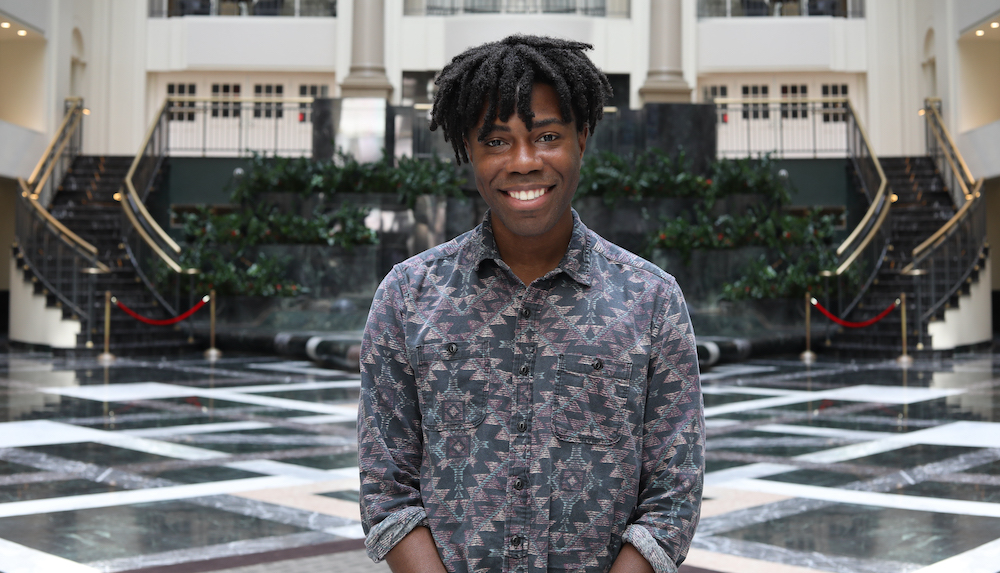Project Own uses a mobile friendly site in partnership with Neighborhood Housing Services of Baltimore (NHS) to get Baltimore residents — especially Black residents — financially ready for homeownership.
In the United States, 44% of Black families own homes, as opposed to 73% of white families, according to a 2019 report by real estate brokerage Redfin, which analyzed U.S. Census data. In an effort to improve Black homeownership through an app and mobile friendly site, Project Own pairs users with financial counselors to get them mortgage-ready. It is working with NHS Baltimore, an organization dedicated to sustainable homeownership and helping people achieve dreams of homeownership.
“[Homeownership] is an enormous problem that’s really the root of lack of upward socioeconomic mobility and wealth creation in the Black community,” said Tyrell Dixon cofounder of Project Own. The venture was one of the 13 companies that recently completed programming in Loyola University Maryland’s Baltipreneurs Accelerator.
Dixon has worked in housing and real estate from multiple angles, from the public sector with the Baltimore Department of Housing and Community Development to the private sector. He found that the criteria to qualify for a mortgage, or mortgage-readiness, was holding a lot of Black households back.
“People assume that homeownership counseling is about helping people qualify for a mortgage. It’s not,” said Dixon. “The traditional homeownership counseling system is about taking people that are already mortgage ready and essentially showing them how to buy a house.”
A 640 credit score and a couple thousand dollars in savings qualify someone as “mortgage ready.” Only 20% of black households have a FICO score above 700, compared to 50% of white households according to a 2019 study by the Urban Institute on the racial homeownership gap.
Project Own is focused on reimagining homeownership counseling and meeting people where they are to improve their changes of buying a house. On the NHS site, the area where Project Own is assisting is titled financial counseling, but the end goal is to create more homeowners. While working in real estate, Dixon saw how although it’s necessary to improve and renovate houses for the community, it can be inefficient when it comes to bigger goals like tripling the rate of Black homeownership.
“Even if you could renovate 20 homes on the block, what does that mean for the tens of thousands households in our city that need this type of service?” said Dixon, about programs that renovate houses for a neighborhood to sell back to legacy residents at affordable prices. “Why aren’t we addressing the fact that there’s so many Black households that aren’t ready to buy, even if they have the income to support homeownership, even if they’re grossly overpaying for rent each month?”
An enormous problem that’s really the root of lack of upward socioeconomic mobility and wealth creation in the Black community.
NHS allows users to meet with a financial counselor and make a financial plan toward homeownership. This can include a savings plan, or going through the process to improve credit. Before Project Own’s site, about 60 households a year were using NHS services. Since Project own piloted the app and site with NHS, signups for their services have increased to 120.
In the six months since the program with NHS using Project Own has started, users have begun to graduate and see a 50-point increase in credit score and a $2500 increase in savings, along with the housing subsidies NHS helps users find, according to Project Own.
The advantages of the site and modernization of the process are that financial counselors can now passively track the progress of multiple clients, increasing their capacity to assist more future homeowners. They can see if a client is reaching their monthly savings goal with their accounts, or if their credit score is steadily improving. Additionally, the company says the average coaching meetings have gone from two hours to 53 minutes. Before Project Own, every part of the financial coaching process was labor intensive and in-person. The intake process required alone required 12 documents that were verified by an individual. That process has been cut to five documents and is now digital.
“You can monitor clients’ process from a dashboard instead of having to meet for an hour every single month, regardless of the clients progress,” said Dixon. “The idea is with the same number of staff — and the pilot is to figure out exactly how many more — you can serve considerably more clients.”
Donte Kirby is a 2020-2022 corps member for Report for America, an initiative of The Groundtruth Project that pairs young journalists with local newsrooms. This position is supported by the Robert W. Deutsch Foundation.Join the conversation!
Find news, events, jobs and people who share your interests on Technical.ly's open community Slack

Baltimore daily roundup: Mayoral candidates talk tech and biz; a guide to greentech vocabulary; a Dutch delegation's visit

Baltimore daily roundup: Medtech made in Baltimore; Sen. Sanders visits Morgan State; Humane Ai review debate

Baltimore daily roundup: An HBCU innovation champion's journey; Sen. Sanders visits Morgan State; Humane Ai review debate


